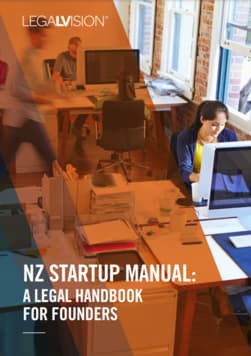Does your business have a unique piece of intellectual property (IP)? As intellectual property is a type of asset, you may be able to use it as loan collateral. This article will explain what loan collateral is and whether you can use intellectual property for it.
Definition of ‘Loan Collateral’
When you obtain a loan, usually from a bank, the entity loaning to you may ask for collateral or security. This is typically an asset, like property or a car. Likewise, if you fail to meet your repayments, the lender can obtain and sell the collateral to make good on your debt. In other words, loan collateral is the asset your loan is secured against.
Types of Loan Collateral
Generally, a bank might have a general security agreement over a company’s assets. Such an agreement allows a bank to sell a company’s assets if the company cannot repay the loan. This should be registered on the personal property securities register.
Alternatively, a lender may have collateral over a single item, meaning they will only be able to use that item to pay back any outstanding loan amount.
Continue reading this article below the formIntellectual Property as Loan Collateral
It will be up to the lender’s discretion whether they let you use intellectual property as loan collateral. Traditional banks may struggle to accept intellectual property as loan collateral due to their capital requirements or banking regulations. However, you may be able to use intellectual property as loan collateral in certain situations. Importantly, you must be aware of whether your lender will allow this before you enter into a loan agreement with them.
Valuation
One of the biggest issues with using intellectual property as collateral is trying to value it. As it is not a tangible asset, differing valuations can contradict each other, and it can be difficult to come to an objective value.
How you value intellectual property will depend on whether the intellectual property creates an income stream. To value intellectual property, you should also look at:
- its lifecycle; and
- whether it is going to be valued at the same amount forever.
Ownership Issues
The main issue that lenders may face is intellectual property ownership. If you, as a borrower, cannot repay the loan, there needs to be a clear contractual obligation requiring you to transfer ownership or control to the lender.
Alternatively, you and the lender might agree that you keep the intellectual property’s ownership but that you transfer any income streams to the lender. For example, it will be relatively simple for you to transfer the royalties of a song to a lender until the debt has been repaid.
Personal Property Securities Act (PPSA)
It is also important to remember that intellectual property is regarded as personal property under the PPSA. Accordingly, if you use intellectual property as loan collateral, your bank or lender will likely register this interest on the PPS register, meaning it will be subject to certain provisions. For example, your lender will have priority over any other creditor who has not registered their security interest on the PPS register or who registers later in time.

Essential reading for anyone building their startup. This free guide includes practical advice and seven real-life case studies.
Key Takeaways
If your business has valuable intellectual property, you may be able to use it as loan collateral. However, your bank will want to ensure that they can either sell your intellectual property or have rights to the revenue generated from it if you cannot repay your loan. In addition, certain banking laws or internal regulations may prevent a lender from using intellectual property as loan collateral.
For more information, our experienced corporate lawyers can assist as part of our LegalVision membership. For a low monthly fee, you will have unlimited access to lawyers to answer your questions and draft and review your documents. Call us today on 0800 005 570 or visit our membership page.
We appreciate your feedback – your submission has been successfully received.












